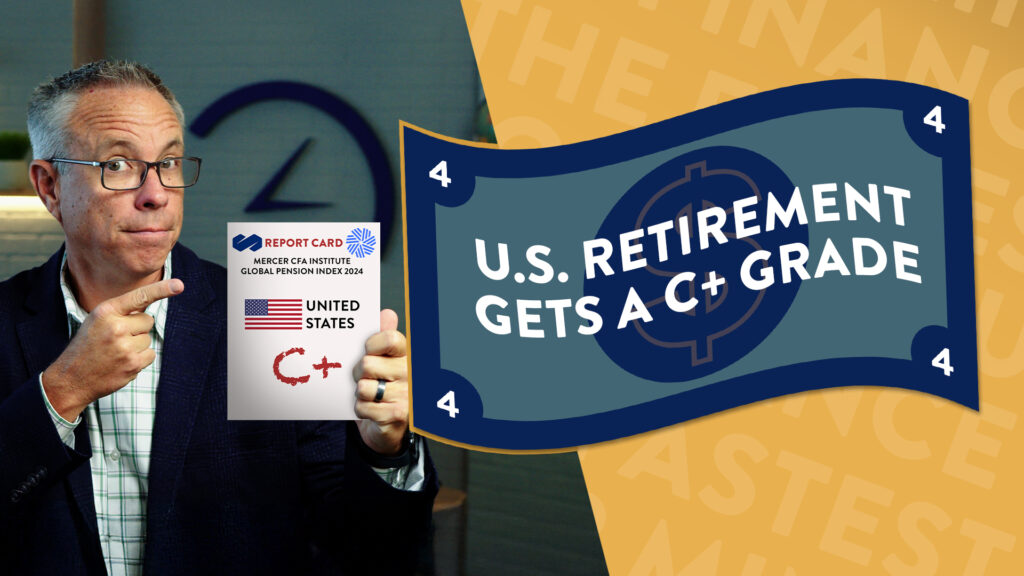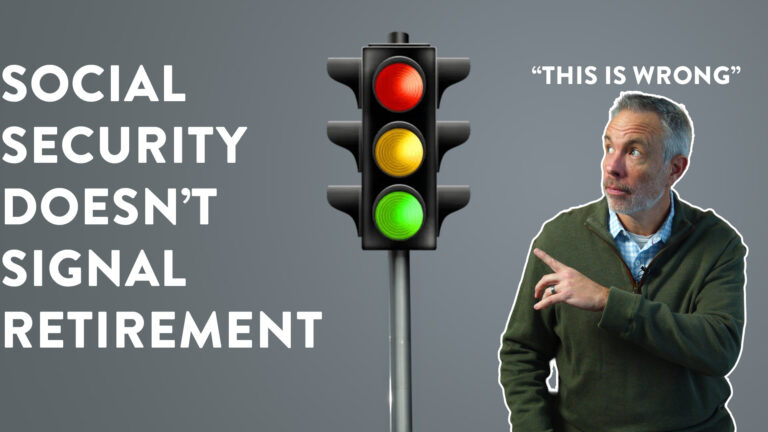America’s Retirement Report Card
Depending on what kind of student you were, or are, a C+ could be a grade that is satisfactory, or a grade that makes you wonder how long you’ll be grounded for.
In retirement, we don’t want you to settle for a C+ grade. But, if you’re counting on the government or even your employer to do everything for you, that’s about the best you’ll get.
Global Pension Index: U.S. Retirement System Ranking
The 16th annual Mercer CFA Institute Global Pension Index ranked the United States 29th out of 48 countries for its retirement system. The Index evaluates both government and public sector sources of retirement income. It ranks the retirement systems based on adequacy, sustainability, and integrity.
The fact that the U.S. gets a C+ grade is not surprising. It’s never received a better one since the Index was created 15 years ago.
Demographic Challenges: Longevity vs Birth Rates
The biggest reason for a low grade for the U.S. is demographics. Birth rates are falling and longevity rates are rising. In other words, we are living longer, but we don’t have as many younger workers to pay for our retirement.
Social Security Crisis: Looming Benefit Cuts
Social Security faces a shortfall in its reserve fund by 2033, which will result in benefits being cut by up to 20%, if nothing is done by lawmakers to fix it.
The Disappearing Pension: Employee Retirement Security
Pensions are disappearing. Just 21% of workers have one through their employer. That’s because private companies face the same problem as Social Security. Their retired workers are living longer, and thereby receiving more retirement income, which puts more stress on the pension fund.
We continually work with clients who have pensions that are frozen, or are offered lump sum buyouts. Private companies want to get rid of the liability.
401(k) Plans: The New Retirement Reality
That leaves employer-sponsored retirement plans, like the 401k. Workers can contribute their own money to the plan, and the employer can kick in with matching funds. America is not doing well here either.
First, a third of workers don’t have access to an employer-sponsored retirement plan. And, for workers who do, they are not saving enough. According to researchers, Americans are expected to outlive their retirement savings by about 10 years.
Global Best Practices: Lessons from the Netherlands
So, what can be done? The top ranked country on the Index is the Netherlands. Some of the reasons it ranks higher : the employers automatically enroll workers in retirement plans, and set an automatic increase to the savings rate over time. Researchers also say it is quasi-mandatory for employers to offer a plan in the Netherlands, due to collective bargaining agreements with unions.
U.S. Policy Changes: SECURE ACT 2.0 and Auto Enrollment
Here at home, the SECURE ACT 2.0 will install the auto-enrollment in 2025. But, the key takeaway here is that YOUR retirement doesn’t have to be a C+.
Taking Control of Your Retirement Future
You have the power to save, invest, and plan for your financial independence. You have the freedom to choose a financial advisor to help you reach your goals. You don’t have to rely on the government or your employer to have an A+ retirement.
The opinions voiced in this video and blog are for general information only and are not intended to provide specific advice or recommendations for any individual.
Securities offered through LPL Financial, Member FINRA/SIPC. Investment advice offered through Independent Advisor Alliance. Independent Advisor Alliance and GenWealth Financial Advisors are separate entities from LPL Financial.





